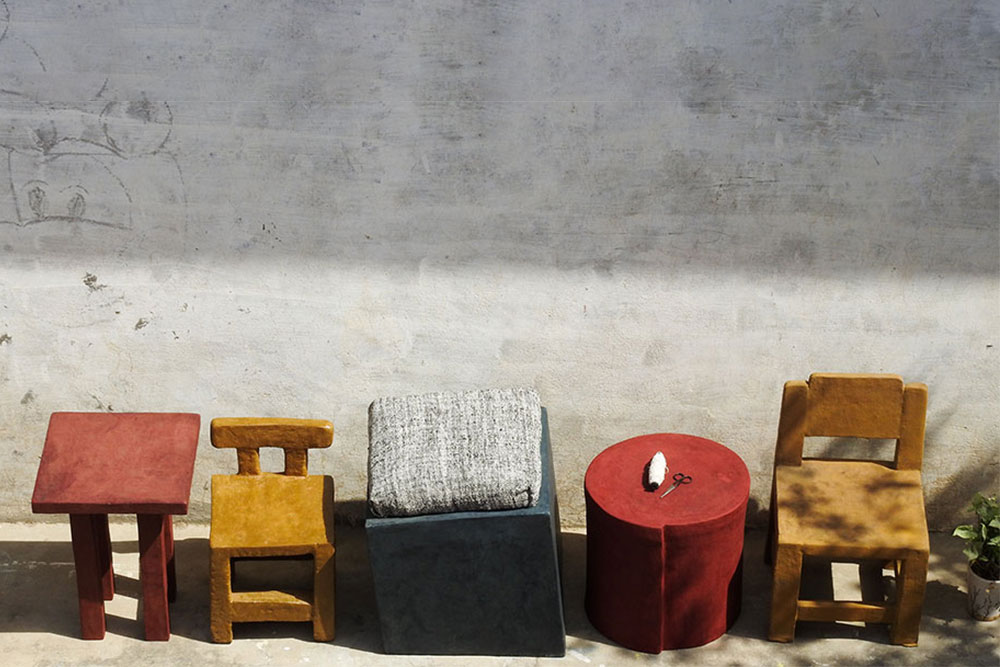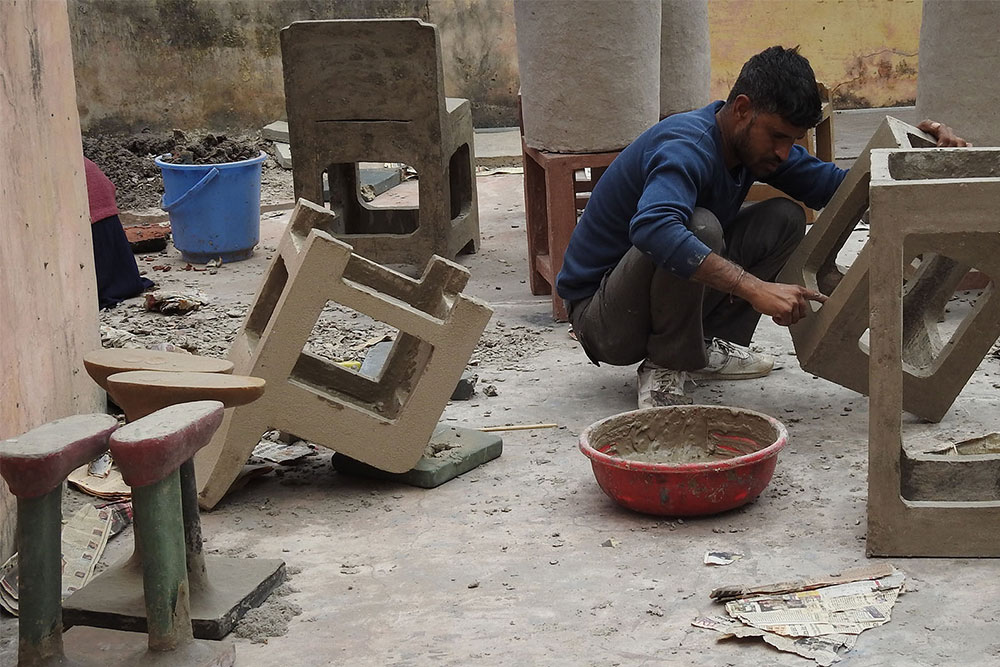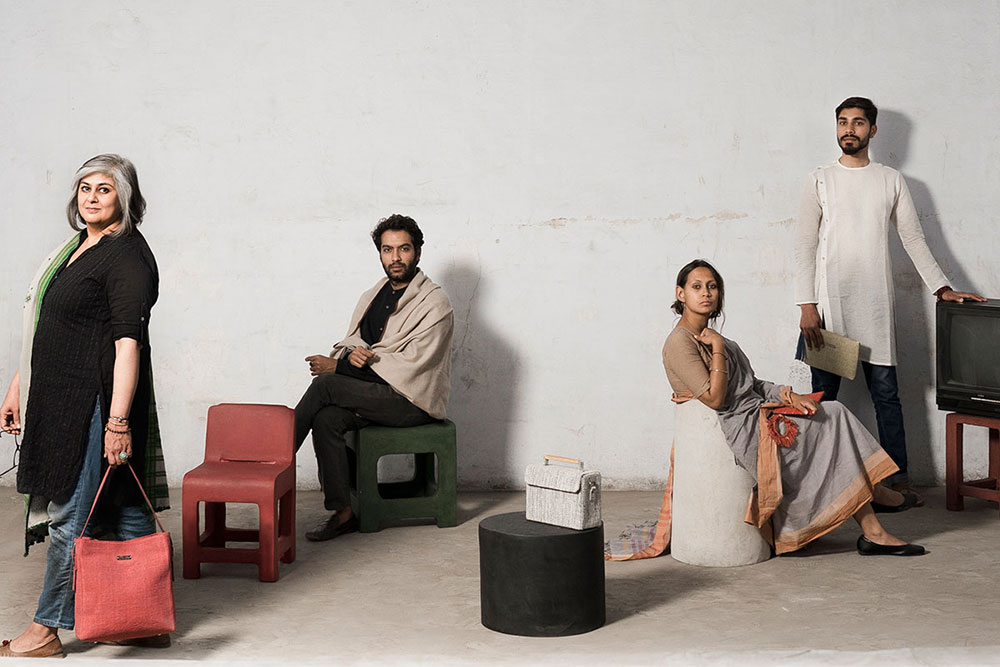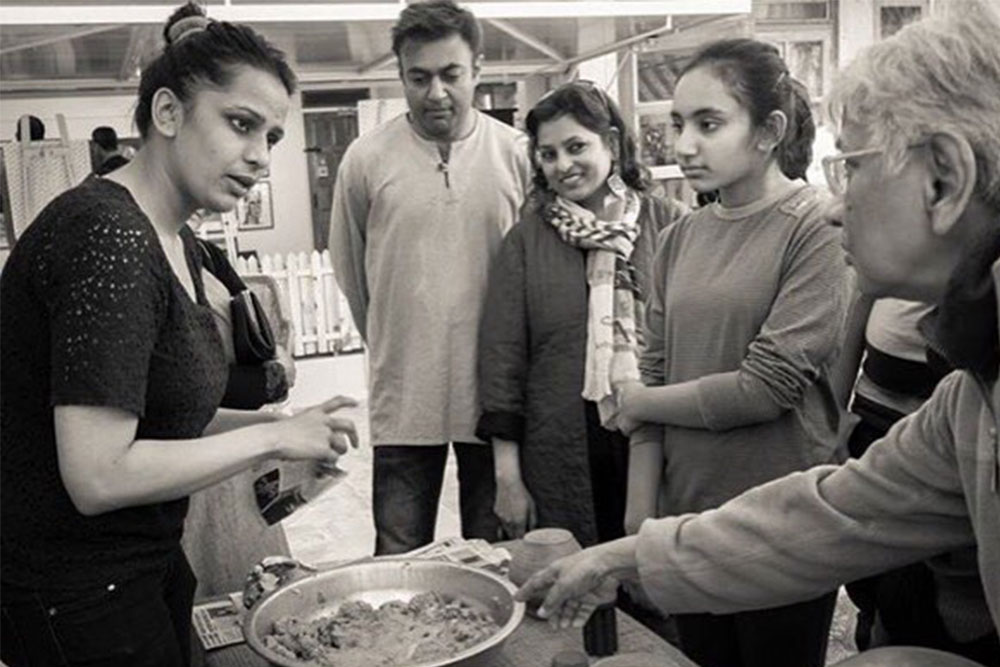Spriha Chokhani, who founded Pulp Factory—a community aimed at producing responsible and utilitarian products by bringing the best out of newspaper waste—in 2017, resists tags of any kind. “They limit you to a box,” she believes, as we begin discussing her entrepreneurial journey. The 32-year-old is on a mission to showcase the versatility and utility of paper, one of the most ‘mundane’ products of everyday lives.
This begs the question, what led her to make paper the centre of her profession? It all began in 2010 when Chokhani, along with other students, was assigned the task of working with a material of their choice as part of their final project at Srishti Institute of Art, Design and Technology, Bengaluru, where she studied product design. Chokhani picked paper mache simply because she wanted to explore the unexplored. “Most students chose bamboo or cane. The humble paper opened up so many possibilities. Somehow, even after graduating, I knew I wanted to continue understanding the versatility of this underestimated material. Gradually, it led me to the path of ‘entrepreneurship’ as many would like to call it,” she says.

In 2017, the 32-year-old registered Pulp Factory as a company in Jaipur, and began with a team of three. Chokhani explains that there are two aspects to Pulp Factory. One, creating furniture out of newspaper, and two, paper textiles, where fashion waste is converted into paper, which is turned into fabric for shoes and bags. “All products are biodegradable and water resistant. The idea is to not leave any trace behind, and what we use must dissolve back.”

The entrepreneur has come a long way from where she started, with her business making a place for itself. While this wasn’t always the case, she was never discouraged. “For most, this was a vision they could not see, an idea they couldn’t perceive. I had to constantly remind myself that conditioning plays an important part in most not believing in the concept instantly. When we talk of paper, we think about notepads, and here I am trying to tell customers that they can use it as furniture,” she smiles, adding that the most common concern amongst customers is —will it be able to take the weight?
Chokhani informs that every piece of furniture can take weight up to 200 kg, and is more durable than the more commonly used wood.
As a woman catering to a niche market, the 32-year-old states that patience and no fear of failure are key. “When I started out, strangely, it was a challenge to be taken seriously. But, I stood my ground to get the project moving. That this is a slow process is undeniable, and according to me, executing ideas is important before you understand whether it will work or not. You can’t be fearful of the outcome beforehand,” Chokhani adds.

In addition to the hiccup, the entrepreneur was also slapped with remarks such as “make better use of your time”, “you have an expensive hobby,” and “this is just a phase” among others. How did she react to them? “You have to learn to ignore these comments. In India, art hasn’t been perceived correctly. The moment we speak of design, one automatically thinks of fashion design and runways. Fortunately, new artists are coming up and we, hopefully, can change this narrative.”
Does she mean she is not even affected by these notions? “Why would I want to remember anything that pulls me down? Instead, I concentrate on family, friends and customers who believe in me,” she says.

Pulp Factory follows the made-to-order model with each piece (be it the furniture or bags) taking about 25 to 30 days to make, depending on the weather conditions. Fortunately, the pandemic has not affected the business. In fact, it has helped people realise the importance of sustainability. “This is not how I would have wanted people to understand the urgency of the situation, but it’s a blessing in disguise. It is a step in the right direction.”
In the coming months, she is looking at placing her products in schools to spread awareness around the concept. “The crux of the matter is, we need to get back to the way our grandparents lived. We need to take care of everything that surrounds us. It’s now or never,” she concludes.